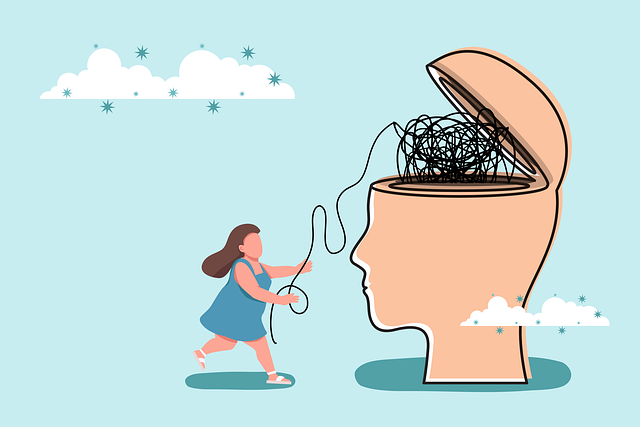Sexual abuse profoundly affects young adults' mental health, leading to anxiety, depression, and PTSD. Effective healing strategies include compassion cultivation and non-judgmental acceptance. Safe communication through therapy or community programs empowers survivors to share experiences, fostering resilience. Journaling is a powerful tool for self-reflection and processing traumatic memories, helping young adults recover from sexual abuse by promoting mindfulness, self-awareness, and emotional release. Personalized journaling prompts facilitate deep reflection, validation of feelings, and cultivation of self-compassion, essential steps in overcoming therapy challenges for survivors.
Mental wellness journaling can be a transformative exercise for young adults who have experienced sexual abuse, offering a safe space for healing. This article explores the profound impact of sexual abuse on mental health and positions journaling as a powerful therapeutic tool. We provide guidance on creating a personalized journaling practice that fosters emotional release and offers coping strategies tailored to survivors. By the end, you’ll discover how this simple yet effective method can empower young adults on their journey towards healing.
- Understanding the Impact of Sexual Abuse on Mental Health
- The Power of Journaling as a Healing Tool
- Creating a Safe and Personalized Journaling Practice
- Strategies for Effective Emotional Release through Journaling
Understanding the Impact of Sexual Abuse on Mental Health

Sexual abuse is a profound and complex issue that can have lasting effects on an individual’s mental health, especially in young adults who are still developing their sense of self and emotional resilience. Understanding the impact of sexual abuse is crucial for anyone supporting survivors through therapy or community outreach programs. This experience often leads to a myriad of challenges, including anxiety, depression, post-traumatic stress disorder (PTSD), and difficulties forming healthy relationships.
Survivors may struggle with feelings of shame, guilt, and a distorted sense of self-worth, hindering their ability to thrive in various aspects of life. Compassion cultivation practices have shown promise in helping young adult sexual abuse survivors heal by fostering non-judgmental acceptance of their experiences and emotions. Effective communication strategies within therapy sessions or community outreach programs can create safe spaces for survivors to share their stories, leading to increased resilience and improved mental wellness over time.
The Power of Journaling as a Healing Tool

Journaling has long been recognized as a powerful tool for self-reflection and healing. For young adults who have experienced sexual abuse, it can serve as a safe and private space to process traumatic memories and emotions. By putting thoughts onto paper, survivors can begin to make sense of their experiences and start the journey towards recovery. This therapeutic practice allows them to confront and release bottled-up feelings, which is especially crucial in overcoming the profound impact of such trauma.
In the context of mental wellness, journaling can be a game-changer for depression prevention and reducing the stigma associated with mental illness. It encourages individuals to develop self-awareness, fostering a deeper understanding of their emotional patterns. Moreover, it promotes mindfulness meditation, helping survivors stay present and grounded while navigating their healing process. Through regular expression, they can gain insights into their triggers, cope more effectively, and build resilience over time.
Creating a Safe and Personalized Journaling Practice

Creating a safe space for journaling can be transformative for young adults who have experienced sexual abuse. It offers a private, non-judgmental platform where they can process trauma, emotions, and memories at their own pace. Personalizing this practice is key; using prompts tailored to their unique experiences encourages self-reflection and healing. For instance, a survivor might journal about their feelings towards specific triggers or reflect on positive affirmations that resonate with them.
This therapeutic ritual fosters self-awareness exercises, allowing individuals to reconnect with their thoughts and emotions. In the context of sexual abuse recovery, it’s crucial to build compassion cultivation practices into journaling routines. By acknowledging and validating their feelings, survivors can develop a sense of safety and self-compassion, which are vital for navigating the challenges they face.
Strategies for Effective Emotional Release through Journaling

For young adults who have experienced sexual abuse, emotional release through journaling can be a powerful therapy. It provides a safe space to express feelings and memories that may be difficult to articulate verbally. One effective strategy is to begin with unfiltered, free-flowing writing, allowing thoughts and emotions to flow without judgment. This can help in processing traumatic experiences and releasing suppressed emotions.
Additionally, incorporating specific prompts tailored for sexual abuse survivors can facilitate deeper reflection. These prompts might encourage the writer to explore feelings of shame, guilt, or anger, and to reflect on personal strengths and resilience. Techniques such as conflict resolution through writing—imagining and expressing dialogue with the abuser—can aid in healing and forgiveness processes. Self-awareness exercises within journaling can also help individuals better understand their triggers, coping mechanisms, and patterns, which is crucial for depression prevention and overall mental wellness.
Mental wellness journaling can serve as a powerful therapy for young adults who have experienced sexual abuse, offering a safe and personalized space for emotional release. By understanding the impact of trauma and leveraging the healing potential of journaling, survivors can navigate their mental health journey with increased resilience. With effective strategies in place, journaling becomes a transformative tool that empowers individuals to process emotions, promote self-care, and foster personal growth – essential steps towards healing and recovery.














